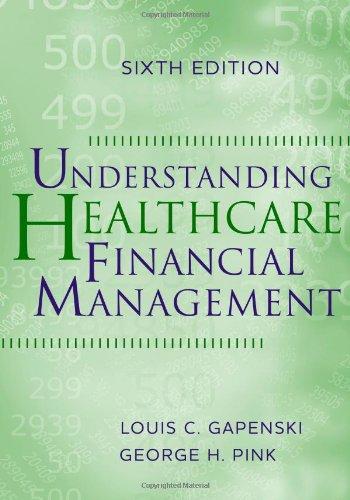Question
A stock has a beta of 1.1, the expected return on the market is 17 percent, and the risk-free rate is 10.2 percent. What must
| A stock has a beta of 1.1, the expected return on the market is 17 percent, and the risk-free rate is 10.2 percent. What must the expected return on this stock be? |
Multiple Choice
-
18.39%
-
28.9%
-
18.56%
-
17.68%
-
16.8%
| You own a portfolio that has $2,200 invested in Stock A and $3,600 invested in Stock B. If the expected returns on these stocks are 11 percent and 15 percent, respectively, what is the expected return on the portfolio?(Do not round your intermediate calculations.) |
Multiple Choice
-
13.00%
-
14.16%
-
12.52%
-
13.48%
-
13.75
| A stock has an expected return of 15 percent, its beta is 1.25, and the expected return on the market is 13 percent. What must the risk-free rate be? (Do not round your intermediate calculations.) |
Multiple Choice
-
5.20%
-
4.75%
-
-1.25%
-
5.00%
-
5.25%
| ou want to create a portfolio equally as risky as the market, and you have $1,500,000 to invest. Consider the following information: |
| Asset | Investment | Beta |
| Stock A | $300,000 | 0.75 |
| Stock B | $450,000 | 1.25 |
| Stock C | 1.50 | |
| Risk-free asset | ||
| Required: |
| (a) | What is the investment in Stock C? (Do not round your intermediate calculations.) |
| (Click to select) $291,667 $456,000 $451,250 $475,000 $494,000 |
| (b) | What is the investment in risk-free asset? (Do not round your intermediate calculations.) |
| (Click to select) $458,333 $286,000 $275,000 $261,250 $264,000 |
| ou have $30,000 to invest in a stock portfolio. Your choices are Stock X with an expected return of 15 percent and Stock Y with an expected return of 6 percent. |
| Required: |
| (a) | If your goal is to create a portfolio with an expected return of 11.8 percent, how much money will you invest in Stock X? |
| (Click to select) $20,106 $18,366 $20,300 $19,333 $39,333 |
| (b) | If your goal is to create a portfolio with an expected return of 11.8 percent, how much money will you invest in Stock Y? |
| (Click to select) $10,667 $10,240 $11,094 $11,200 $10,134 |
| A portfolio is invested 20 percent in Stock G, 65 percent in Stock J, and 15 percent in Stock K. The expected returns on these stocks are 8 percent, 16 percent, and 29 percent, respectively. What is the portfolio's expected return? |
Multiple Choice
-
14.13%
-
15.53%
-
16.35%
-
17.00%
-
17.17%
| You own a portfolio equally invested in a riskfree asset and two stocks. If one of the stocks has a beta of 1.05 and the total portfolio is equally as risky as the market, what must the beta be for the other stock in your portfolio? |
Multiple Choice
-
1.00
-
2.05
-
0.95
-
1.95
-
1.85
| Consider the following information: |
| Rate of Return if State Occurs | |||
| State of Economy | Probability of State of Economy | Stock A | Stock B |
| Recession | 0.10 | 0.05 | -0.18 |
| Normal | 0.50 | 0.08 | 0.14 |
| Boom | 0.40 | 0.13 | 0.35 |
| Required: |
| (a) | Calculate the expected return for Stock A. (Do not round your intermediate calculations.) |
| (Click to select) 8.69% 8.62% 10.19% 10.09% 9.70% |
| (b) | Calculate the expected return for Stock B. (Do not round your intermediate calculations.) |
| (Click to select) 18.24% 19.97% 20.16% 19.20% 10.33% |
| (c) | Calculate the standard deviation for Stock A. (Do not round your intermediate calculations.) |
| (Click to select) 2.83% 2.94% 2.00% 2.97% 2.69% |
| (d) | Calculate the standard deviation for Stock B. (Do not round your intermediate calculations.) |
| (Click to select) 11.22% 16.50% 16.66% 15.87% 15.07% |
| You own a stock portfolio invested 25 percent in Stock Q, 25 percent in Stock R, 5 percent in Stock S, and 45 percent in Stock T. The betas for these four stocks are 1.8, 1.22, 0.84, and 1.73, respectively. What is the portfolio beta? |
Multiple Choice
-
1.61
-
1.65
-
1.54
-
1.58
-
1.5
Step by Step Solution
There are 3 Steps involved in it
Step: 1

Get Instant Access to Expert-Tailored Solutions
See step-by-step solutions with expert insights and AI powered tools for academic success
Step: 2

Step: 3

Ace Your Homework with AI
Get the answers you need in no time with our AI-driven, step-by-step assistance
Get Started


